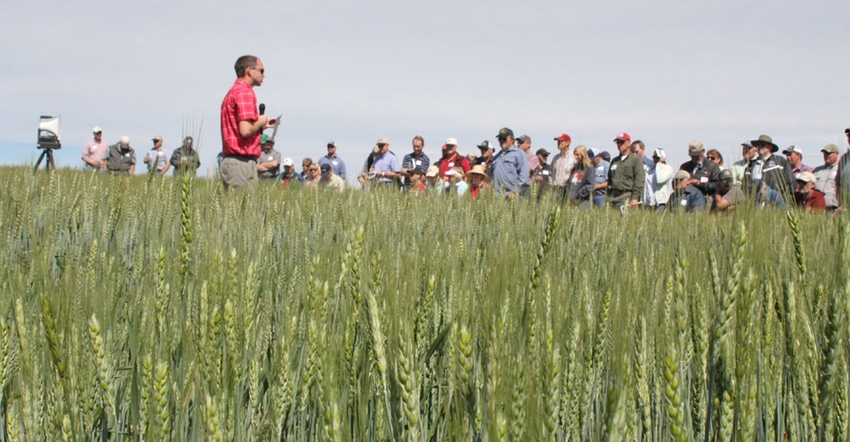June 4, 2019

Dryland farming presents a special range of challenges for farmers, and keeping up on the latest information about key crops and management practices can give your operation a leg up for the future. The upcoming Lind (Wash.) Field Day at the Lind Dryland Research Station offers a wide-ranging look at crops, cropping systems — and an informative noon issues program, too.
Set for June 13, registration kicks off at 8:30 a.m. and field tours begin at 9 a.m. The tours include the following options.
• Making Soil Health Assessments Useful for Farmers. Shannon Cappellazzi, Soil Health Institute. This is an increasingly hot topic, as more farmers see value in improving soil.
• Winter Peas. With Howard Nelson, Highline Grain; and Rebecca McGee, USDA Agricultural Research Service. Nelson works as a special services provider from Highline Grain, a grain and marketing business. McGee is a researcher who has studied a range of winter crops and done work to develop winter peas resistant to key crop diseases.
• Winter Wheat Breeding. Kim Garland-Campbell, USDA ARS; and Gary Shelton, Washington State University. Garland-Campbell is a geneticist interested in working on ways to control wheat diseases, and breeding wheat for winter survival. Shelton is a research technologist in spring wheat breeding and genetics at WSU.
• Spring Wheat Breeding. Mike Pumphrey, who leads the spring wheat breeding and genetics at WSU.
• Biosolids: Wheat Agronomy and Soil Microbes. Bill Schilliner. Biosolids are seen as a potential way to boost organic matter in the soil, but they do require management.
Full noon program
At midday, Rich Koenig, associate dean of the College of Agricultural, Human and Natural Resource Sciences, will moderate a panel of speakers who represent a diverse range of groups: André-Denis Girard Wright, dean, CAHNRS; Washington state Sen. Mark Schoesler; Gary Baily, commissioner, Washington Grain Commission; Jeff Shawver, president, Washington Association of Wheat Growers; and Karen Sowers, executive director, Pacific Northwest Canola Association. Koenig, also interim chair of the departments of Crop and Soil Sciences and Horticulture, WSU, is part of the panel as well. The even wraps up with an ice cream social, and attendees will be on their way by 2:30 p.m.
For this event, Washington Pesticide Recertification credits are requested.
To get to the station from Highway 395, take the Lind exit and proceed two miles into Lind. Turn right at the Lind City Park (watch for the Washington State University sign board). Go three blocks to the stop sign, turn right and follow the paved road heading north out of town. When you come to a fork in the road 1 mile from Lind, take the road to the right as indicated by the WSU sign. The station is 2 miles farther down that road.
Learn more about the station and its work at lindstation.wsu.edu.
Source: Washington State University. The source is solely responsible for the information provided and is wholly owned by the source. Informa Business Media and all its subsidiaries are not responsible for any of the content contained in this information asset.
You May Also Like




